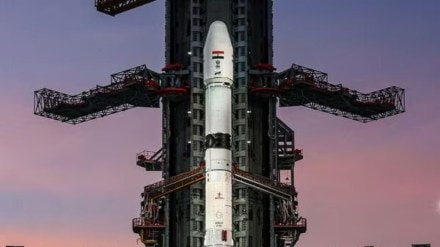The 27-hour countdown for ISRO’s landmark 100th mission began on Tuesday (January 28), marking a significant milestone with the upcoming launch of a Navigation satellite aboard a GSLV rocket from the Sriharikota spaceport, sources in the space agency confirmed. This mission also holds special significance as it will be the first under the leadership of ISRO Chairman V. Narayanan, who took office on January 13.
The Geosynchronous Satellite Launch Vehicle (GSLV) with an indigenous Cryogenic upper stage is set for its 17th flight, carrying the NVS-02 navigation satellite. The launch is scheduled for 6:23 AM on January 29 from the second launch pad at the spaceport.
The NVS-02 satellite is the second in the series of the Navigation with Indian Constellation (NavIC) system, which aims to deliver precise position, velocity, and timing information to users across the Indian subcontinent and up to 1,500 km beyond Indian borders.
Sources said the countdown officially began at 02:53 AM on Tuesday, setting the stage for the highly anticipated launch.
Weighing in at 2,250 kg, the NVS-02 satellite has been designed and developed by ISRO’s U R Satellite Centre. It carries navigation payloads on L1, L5, and S bands, alongside a ranging payload on the C-band, similar to its predecessor, NVS-01.
The satellite’s capabilities will support a wide range of applications, including terrestrial, aerial, and maritime navigation, precision agriculture, fleet management, location-based mobile services, satellite orbit determination, IoT-based services, and emergency and timing applications.
The GSLV-F15, which will carry the NVS-02, follows the successful launch of the GSLV-F12 mission on May 29, 2023, which placed NVS-01—the first of the second-generation NavIC satellites—into orbit.
The NavIC constellation is expected to grow to five second-generation satellites: NVS-01, NVS-02, NVS-03, NVS-04, and NVS-05, each designed to improve the accuracy and reliability of the system, ensuring continued service availability.
ISRO has expressed confidence that the NVS-02 mission will play a crucial role in enhancing the country’s navigation capabilities and contribute significantly to a variety of industries, including transport, agriculture, and telecommunications.
